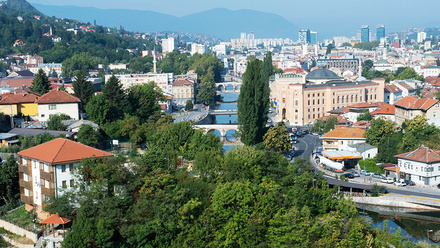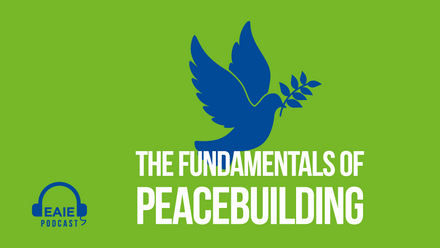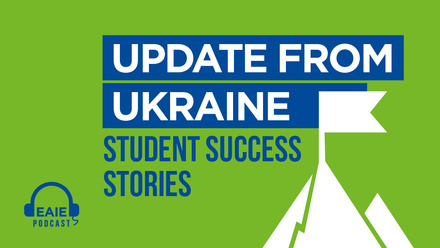Internationalisation: rooted in resilience

In these pandemic times, we in the field of international higher education often find ourselves thinking and talking about the idea of resilience. As a preview to our upcoming issue of Forum magazine on 'Resilience in uncertain times', this perspective from Brazil offers a glimpse into what the near future of internationalisation may look like.
So far, the structural effects on globalisation have been similar to those seen during the financial crisis of the late 2000s – and this could eventually result in the continuity of the globalisation process in all its dimensions. On the other hand, deglobalisation could become evident in the long run, with reductions in different cultural and academic aspects.
According to a report from the World Economic Forum, COVID-19’s staggering impact on global education has affected over a billion students worldwide due to the national safety measures and countrywide closures put in place. This means about 80% of learners around the world have been unable to attend schools and universities.
I have read some oracles prophesying the doom of internationalisation due to the effects of the crisis combined with a rise in nationalism and government intrusion in multilateral research. But is internationalisation really in that much danger?
Overcoming obstacles
The interplay between internationalisation and resilience – the resilience of internationalisation, the internationalisation of resilience – means that we will not see the end of internationalisation as a fundamental premise in higher learning.
In a certain sense, it is through internationalisation that resilience is tracked, shared and learned
Resilience is the process of adapting and changing adversity into opportunity – and institutional resilience enables effective action, fortitude and strength to confront and overcome the obstacles in our way. Internationalisation plays a decisive role in helping universities worldwide to maintain a united front as centres for information dissemination, scientific exchange and discussion of experiences. In a certain sense, it is through internationalisation that resilience is tracked, shared and learned.
Not only do we internationalise resilience by sharing positive experiences in our contexts, encouraging other institutions to move ahead, but we also demonstrate that internationalisation has always been the mitochondrion of the university cell, representing continuous resistance against all sorts of adversity.
Embracing virtual mobility in Brazil
According to a recent report from the EAIE, the COVID-19 crisis has affected everything from international mobility to partnership management in 38 European countries. In Brazil, where I am based, it has provoked a shift from traditional lectures to online education, especially for graduate programmes, as well as cost reduction plans and greater emphasis on students’ autonomy.
Cross-sector collaborations and local coalitions are fundamental responses to promoting open and flexible systems of internationalisation in this time of crisis. Regional partnerships and consortia for teaching, academic mobility and innovative research across South America are modes of resilience that might result in post-recession opportunities. This could suggest a process of unlearning internationalisation planning and delivery by adapting its foundations to a more blended, ‘at home’ process.
Perhaps virtual mobility and its outcomes will foster the most resilient aspects of internationalisation itself
Resilient models are shaped by the availability of alternative, technology-based and relatively cheap education tools. Blended learning initiatives work well with local synchronous classes, but they can also be effective with international asynchronous activities, allowing professors and students to promote virtual exchange. A very successful initiative has been held between the State University of New York in the United States and the Federal University of Pernambuco in Brazil, with dozens of classes and courses being co-taught in a multilingual, multicultural and multi-pedagogical environment. This approach to teaching and learning brings together geographically distant instructors and students from different backgrounds through online educational tools.
Initiatives like this aim to promote shared coursework and collaborative learning, and to provide students with a unique opportunity to get to know each other while conducting projects together. This multicultural dialogue deepens their cooperation and course content comprehension while promoting cross-cultural skills through academic and personal engagement.
Fostering resilience
Education with the support of new technologies will require more student-centred, active learning in which students will take more responsibility for the learning path. The role of the teacher will become closer to facilitator. Methods for cooperative learning are very adaptable for use in the framework of international mobility planning. Collaborative, cross-cultural learning will encourage the development of transcultural abilities, one of the key objectives of exchanges. Perhaps virtual mobility and its outcomes will foster the most resilient aspects of internationalisation itself.
COVID-19 has demonstrated the importance of universities worldwide to overcoming threats and crises. It is our duty to provide consistent responses against pandemics, gender violence and anti-science. It is also our duty to incorporate resilience as a 21st-century competence in the university curriculum, teaching students decision-making, problem-solving and adaptability skills, especially to prepare for and deal with unexpected events. By combining internationalisation and resilience, universities worldwide can continue to promote social inclusion and sustainability in the long run.






